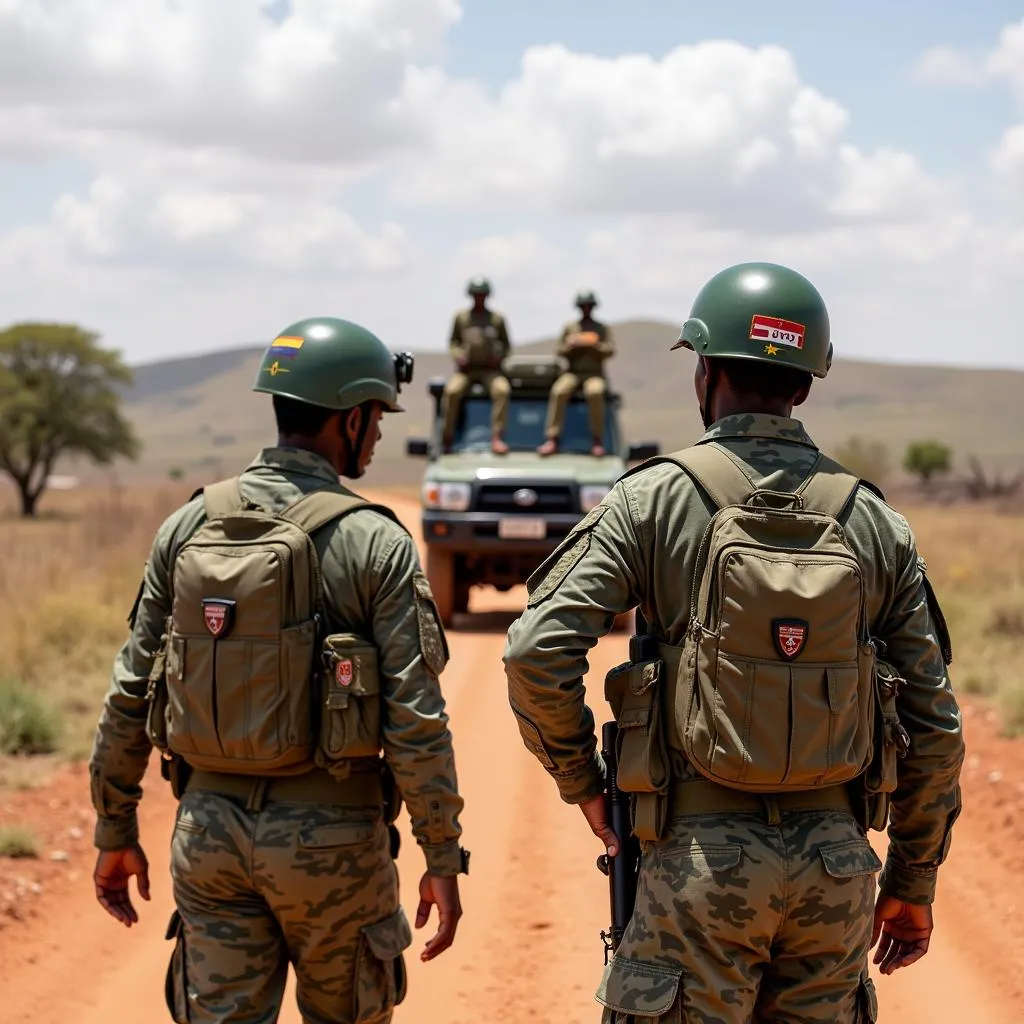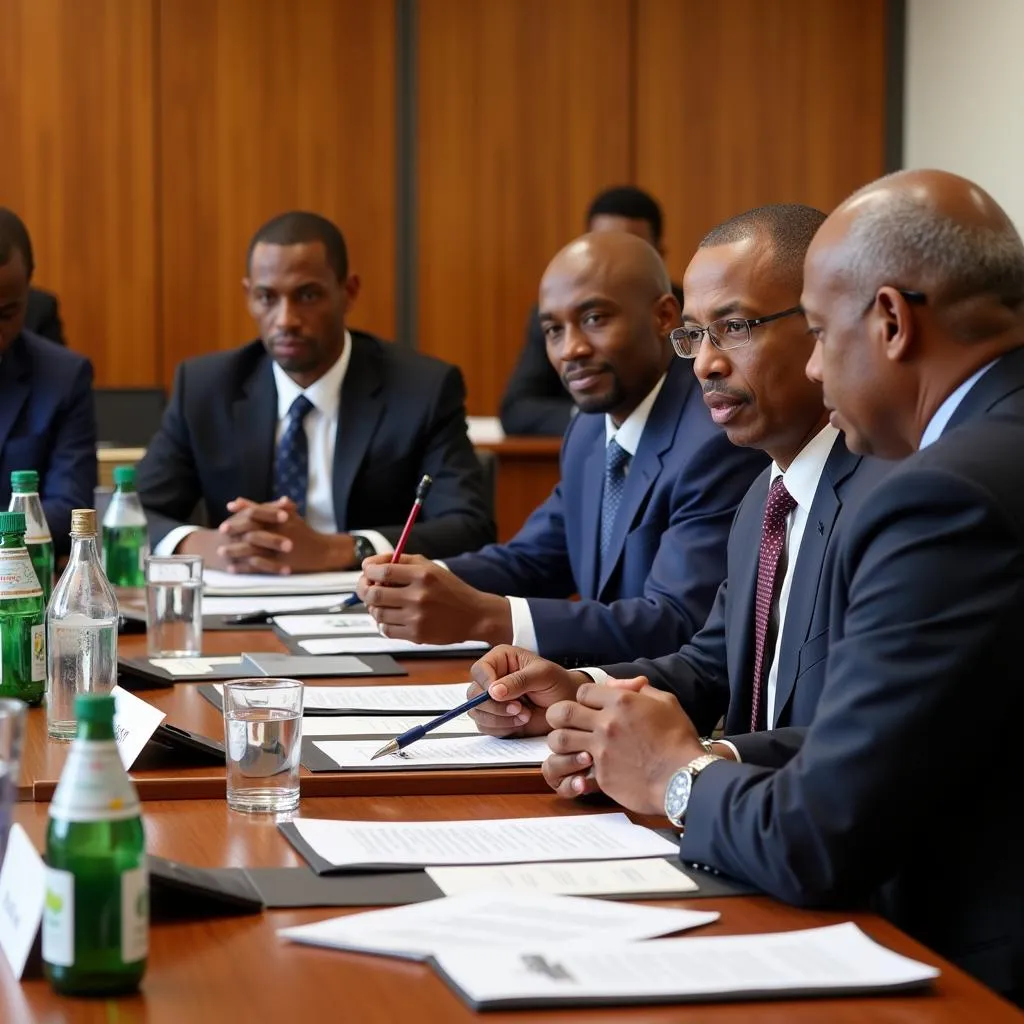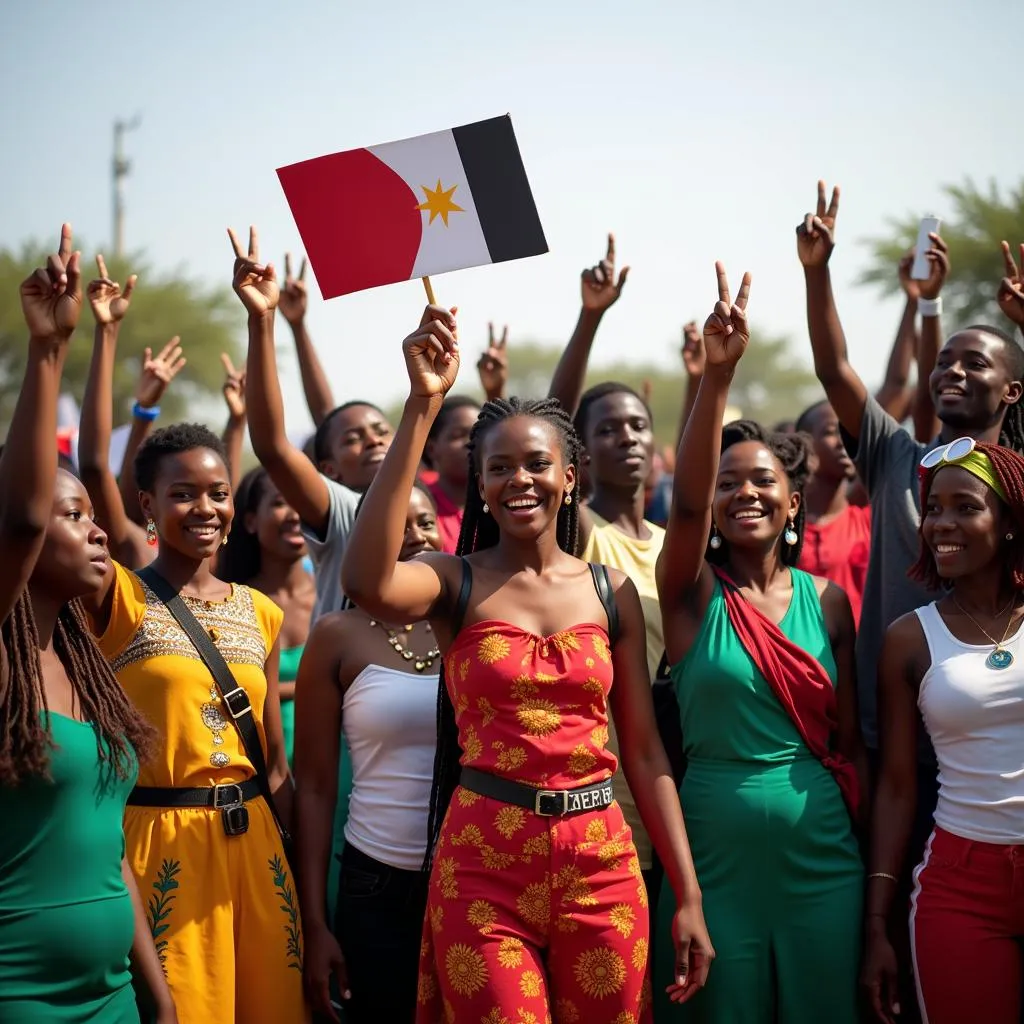African Defence and Security Policy: Navigating a Complex Landscape
African Defence And Security Policy is a multifaceted and evolving field, shaped by a confluence of internal and external factors. From the legacy of colonialism and the Cold War to the rise of transnational threats like terrorism and climate change, African nations face a complex web of security challenges. This article delves into the key dynamics shaping defence and security policy across the continent, exploring the strategies employed by African governments and regional organizations to address these challenges.
 African Union Peacekeeping Force in Action
African Union Peacekeeping Force in Action
Historical Context: From Colonial Legacies to Cold War Politics
Understanding contemporary African defence and security policy requires acknowledging the enduring legacy of colonialism. The artificial borders drawn during the colonial era often divided ethnic groups and created tensions that continue to fuel conflicts today. Moreover, the colonial powers established security structures primarily designed to protect their interests, leaving newly independent African nations with weak and often ineffective security apparatuses.
The Cold War further complicated the security landscape in Africa. Superpower rivalry played out on the continent as the United States and Soviet Union vied for influence, often supporting proxy wars and authoritarian regimes. This period witnessed the militarization of many African states, leading to protracted conflicts and instability.
Contemporary Challenges: Terrorism, Climate Change, and Transnational Crime
In the post-Cold War era, African nations have grappled with a new set of security challenges. The rise of transnational terrorism, particularly in the Sahel and Horn of Africa regions, poses a significant threat. Groups like Boko Haram, Al-Shabaab, and affiliates of ISIS have exploited weak governance and porous borders to launch devastating attacks, displacing communities and undermining stability.
Climate change adds another layer of complexity to African security. Increasingly frequent and intense droughts, floods, and other extreme weather events exacerbate resource scarcity, fuel displacement, and heighten the risk of conflict, particularly in fragile states.
Furthermore, transnational organized crime networks involved in trafficking drugs, weapons, and people operate with increasing impunity in some parts of Africa. These illicit activities undermine state authority, fuel corruption, and contribute to instability.
 African Leaders at a Security Summit
African Leaders at a Security Summit
Evolving Strategies: From National Defence to Collective Security
African nations have adopted diverse strategies to address these multifaceted security challenges. While national defence forces remain crucial, there is a growing recognition of the importance of collective security mechanisms and regional cooperation.
The African Union (AU) plays a central role in coordinating continental security efforts. The AU’s Peace and Security Architecture (APSA) provides a framework for conflict prevention, management, and resolution. It includes mechanisms for early warning, mediation, peacekeeping operations, and post-conflict reconstruction.
Regional organizations like the Economic Community of West African States (ECOWAS) and the Southern African Development Community (SADC) have also played active roles in addressing security threats within their respective regions. These organizations have deployed peacekeeping forces, imposed sanctions on belligerent actors, and facilitated dialogue to resolve conflicts.
Looking Ahead: Investing in Human Security and Good Governance
While military and security measures are essential, African governments increasingly recognize the need for a comprehensive approach that prioritizes human security. This involves addressing the root causes of conflict and instability, such as poverty, inequality, and lack of access to education, healthcare, and economic opportunities.
Good governance, transparency, and respect for human rights are crucial for fostering stability and security. When citizens trust their governments and feel included in decision-making processes, they are less likely to resort to violence or support extremist groups.
Investing in education, healthcare, and economic development is not only a moral imperative but also a security imperative. By empowering individuals and communities, African nations can build more resilient societies better equipped to withstand shocks and address the root causes of conflict.
 African Community Peace Rally
African Community Peace Rally
Conclusion: A Shared Responsibility for a Shared Future
Addressing Africa’s complex security challenges requires a multifaceted and collaborative approach. By strengthening regional cooperation, investing in human security, and promoting good governance, African nations can create a more peaceful and prosperous future for all. The international community also has a crucial role to play by supporting African-led initiatives, providing development assistance, and promoting sustainable peace. African defence and security policy will continue to evolve in response to emerging threats and opportunities, demanding adaptability, innovation, and a commitment to shared responsibility for a shared future.

